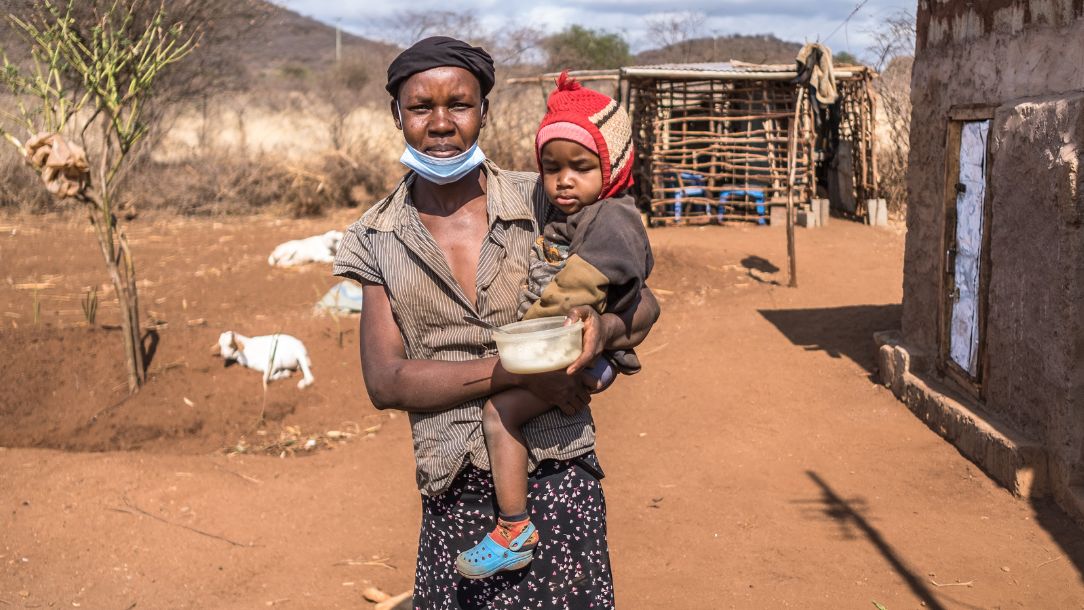Why the far-right were the biggest winners and four other takeaways
David Mac Dougall
16/09/2022
When all the votes were counted the Sweden Democrats might not have been the biggest party in this week's election, but there's no doubt they were the biggest winners.
From early beginnings as a neo-Nazi group to getting their first MPs into the Riksdag only 12 years ago; to supplanting the traditional conservative opposition and garnering more than 20% of the vote this year, the rise of the far-right anti-immigrant party has been meteoric.
The Sweden Democrats may not end up a formal part of the right-wing coalition which has a slim majority in the Swedish parliament, but they will certainly loom large behind the scenes, in the corridors of power, and where government ministries are driven by some of their policies.
1. So what was the secret to the Sweden Democrats' success?
The Sweden Democrats did not have a flash-in-the-pan win at this week's election. They've had a slow and steady build-up of support over the last decade and seen the success of similar anti-immigrant parties in Finland and Denmark getting into government, paving the way for them.
What they have managed to do successfully is link up a recent crime wave involving some shootings and gang violence, with the idea that it's all the fault of foreigners.
Indeed, on the campaign trail, senior Sweden Democrat politicians were openly blaming Islam for many of Sweden's social and economic problems.
They've pivoted away from being openly critical of foreigners to a more nuanced message that says people of different cultures can't live in the same country: and it's a message which has been heard loud and clear by voters.
Whether in government or as the power behind the throne, the Sweden Democrats "will drive a really hard bargain," said Pontus Odmalm, a Swede who lectures in politics at the University of Edinburgh.
Sweden Democrats leader Jimmie Åkesson has made it crystal clear that immigration is the top priority his party wants to see tackled by the next government.
"They will drive a really hard bargain. We might see what happened in Denmark where the government made a deal with the Danish People's Party on budget and immigration. But it's going to be an extremely difficult post-election situation." he told Euronews.
In government, or out of government, there will be a coalition deal of some kind made between the Sweden Democrats and the other parties in the next government, led by the Moderates' Ulf Kristersson.
"I think what we have to see if Sweden Democrats advisers are coming into government departments and if they set limits on what civil servants can do," said Dominic Hinde, an experienced foreign journalist in Sweden who lectures at the University of Glasgow in Scotland.
"Anybody who is directly under the mandate of the state could find they are called to do things they are not entirely comfortable with, and that is uncharted territory.
"Usually there is a huge respect among ministers and politicians for the neutrality of advice the civil service gives, but now they will be expecting more of a confrontation on policy issues," Hinde told Euronews.
2. Sweden Democrats certainly aren't universally popular in Sweden
On a national level, the Sweden Democrats looked to have performed really well. But a closer inspection of some voting results showed they are more popular in some parts of Sweden than others.
Their heartland is in the south of the country, in areas that might have previously been strongholds for the Social Democrats.
In the capital, Stockholm, the Sweden Democrats received just 10% of the votes, while in Gothenburg they got 14.7% of the vote.
But in the southern region of Skåne they polled almost 33% of the votes in the countryside areas. In Skane's biggest city Malmö, they got 16.4% of the vote which really highlights the importance of rural areas in southern Sweden where there are concerns about immigration and crime and where the Sweden Democrats' message is resonating strongly.
3. After election defeats come resignations
It's been a turbulent week for Sweden's first female Prime Minister Magdalena Andersson. On the campaign trail, she's considered a 'rock star' for the Social Democrats, with her image adorning countless posters and leaflets. And with a high trust factor from the public, she was a huge electoral asset to the Social Democrats.
Andersson's personal popularity, however, didn't translate into enough of a boost for her party and she handed in her resignation to the speaker of parliament the day after final polling results came out - even though her party actually gained seven seats in parliament compared to the previous election.
And she wasn't the only high-profile candidate to quit this week. The leader of the Centre Party Annie Lööf also resigned. Her party is nominally centre-right in Nordic politics terms but she was so aghast at the thought of being in power or beholden to the Sweden Democrats -- she repeatedly called them "xenophobes" on the campaign trail -- that her party would have been willing to join a left-wing bloc just to keep them out of office.
"After 11 years as party leader, I will shortly hand over the baton" Lööf wrote on Twitter.
"I do it with a straight back and a sense of pride in the impression the Center Party has made. For the climate, for the countryside and for gender equality. Because we always stood up for humanity."
The Centre Party's election gamble didn't pay off for Lööf, whose party lost seven seats and almost 2% of the vote compared with the previous election.
4. The environment was put on the back burner
The climate crisis didn't feature as strongly in this election cycle as you might imagine. Especially in the home country of Greta Thunberg, where there's even a word for 'flight shaming' people who take too many planes!
In so much as the climate was a part of the campaign it was linked to the energy price hikes, and looking at whether more nuclear power stations would be needed in Sweden.
Greta Thunberg, who made herself globally famous by sitting quietly outside parliament in Stockholm just two weeks before the 2018 general election, has lamented that climate issues were "forgotten" in this campaign.
"The climate is a big and important issue for voters, but my impression is it's not discussed on the same level at all as law and order, and the energy crisis and rising gasoline prices, that's being discussed more," said Nora Theorin from the University of Gothenburg.
"Of course in the party manifesto of the Green Party they are trying to always focus on the climate question and in debates when they are interviewed, but for some reason, this has not translated into votes," she told Euronews.
There was some good news for the Swedish Greens, however, who at one point looked like they might not get enough votes to push them above the 4% threshold to get into parliament.
They polled 5.1% nationally but had a particularly strong showing in some of the bigger cities: 10% in Stockholm, 7.9% in Gothenburg and 7.5% in Malmö.
5. Will Sweden's international image take a hit?
Around the world, Sweden has been seen as a beacon of progressive liberalism. The country of gender equality and full rights for sexual minorities. This is the land of ABBA and IKEA.
But now, how is the rest of the world supposed to look at a country where one-in-five voters cast their ballot for an openly anti-immigrant party?
The Moderates, under likely new Prime Minister Ulf Kristersson, will want to move quickly to reassure international partners that they are the sensible hand at the tiller of the Swedish state.
Of course, talk is one thing, and the next Swedish government - they take on average 18 days to form - will ultimately be judged on its actions whether the Sweden Democrats are a formal part of a coalition government with seats in cabinet, or if they are behind the scenes pulling the strings.
What did we learn from Sweden's election? #UncoveringEurope

www.euronews.com













